Related Research Articles

Education in Singapore is managed by the Ministry of Education (MOE). It controls the development and administration of state schools receiving taxpayers' funding, but also has an advisory and supervisory role in respect of private schools. For both private and state schools, there are variations in the extent of autonomy in their curriculum, scope of taxpayers' aid and funding, tuition burden on the students, and admission policy.

Ettayapuram is a panchayat town in Thoothukudi district of Tamil Nadu, India. It is the birthplace of Tamil poets Mahakavi Bharathiar and Umaru Pulavar. Muthuswami Dikshitar, one of the triad of Carnatic music was patronized in his final years by the ruler of Ettayapuram.

Bharathiar University is a state university in Coimbatore, Tamil Nadu, India. Named after Tamil poet Subramania Bharati, the university was established in February 1982 under the provision of Bharathiar University Act, 1981 and was recognized by the University Grants Commission (UGC) in 1985.

.sg is the Internet country code top-level domain (ccTLD) for Singapore. It is administered by the Singapore Network Information Centre. Registrations are processed via accredited registrars.

The Singapore General Hospital is a tertiary referral hospital in Singapore, located next to Bukit Merah and Chinatown and serviced by Outram Park MRT station. It is the largest and oldest hospital in Singapore, with the foundation of its first building laid in 1821. SGH was ranked as the third best hospital in the world by Newsweek in 2019.
In Tamil, honorifics governs daily speech and register of both written and spoken communication. Traditionally, Tamil has been classified into two registers viz செந்தமிழ் (Centamiḻ) meaning 'classical' or 'pure ' Tamil and கொடுந்தமிழ் (Koṭuntamiḻ) meaning 'corrupt' Tamil. A huge feature of this difference is honorifics. Tamil honorifics usually are suffixes, although prefixes are not uncommon.

Tamil Muslims are Tamils who practise Islam. The community is at least 4.5 million people in India, primarily in the state of Tamil Nadu. In Tamil Nadu, Muslims consider themselves as "Tamils" but Tamil-speaking Muslims in Sri Lanka are classified as Moors due to political factors. The Tamil-speaking Muslims are descendants of marriages between early west Asian Muslims and indigenous Tamil women, and also of local converts.

The Tamil diaspora refers to descendants of the Tamil immigrants who emigrated from their native lands to other parts of the world. They are found primarily in Malaysia, Singapore, Myanmar, South Africa, Pakistan, Réunion, Canada, Mauritius, Fiji, Australia, New Zealand, Europe, North America, and the Caribbean.
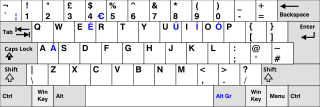
A multitude of languages are used in Singapore. It consists of several varieties of languages under the families of the Austronesian languages, Dravidian languages and Sino-Tibetan languages. According to the Constitution of Singapore, the national language of Singapore is Malay, which plays a symbolic role, as Malays are constitutionally recognised as the indigenous peoples of Singapore, and it is the government's duty to protect their language and heritage. “The national language shall be the Malay language and shall be in the Roman script […]” Also according to the constitution, the four commonly used languages of Singapore are English, Chinese, Malay and Tamil, with the lingua franca between Singaporeans of different races being English, the de facto main language.
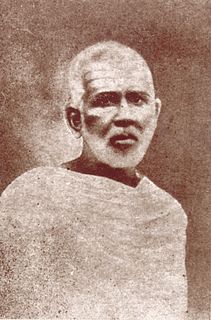
Chunnakam Kumaraswamy Pulavar was a well-known Sri Lankan Tamil scholar and poet from Maylani village in Chunnakam township in Jaffna peninsula in the British held Ceylon now known as Sri Lanka. He lived from 1854 to 1922. He along with other activists were instrumental in the revival of native traditions in Sri Lanka that had been long dormant during the previous 400 years of colonial rule by various European powers.

Swami Vipulananda, also known as Vipulananda Adigal, was a Sri Lankan Tamil Hindu social reformer, literary critic, author, poet, teacher and ascetic from the Eastern Province of Sri Lanka. Vipulanada was an early pioneer associated with the Indian-based Ramakrishna Mission in Sri Lanka. Along with other reformers, Vipulanada was instrumental in the revival of the Hindu religion and native traditions in Sri Lanka after a long period of dormancy and decline during the previous 500 years of colonial rule by various European powers.
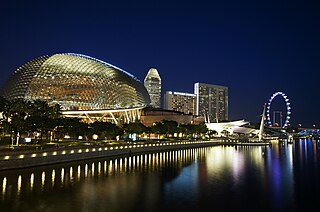
The culture of Singapore or Singaporean culture embodies the artistic, culinary, literary, musical, political and social elements that are representative of Singapore and Singaporeans. As the city-state lies at the crossroads of several major Asian cultures, its core culture consists of a combination of East Asian, Austronesian Malay, South Asian, and Eurasian influences. Contemporary Singapore was also influenced by European culture, mainly by the British, leading it to been dubbed as a country where "East meets West", the "Gateway to Asia" and a "Garden city".
Umaru Pulavar was a Tamil Muslim poet from Tamil Nadu, India. Umaru Pulavar was born in 1642 in the town of Nagalapuram in Thoothukudi district. He is celebrated as one of the greatest Islamic poets of India.
Pulavar K. Govindan was a writer, historian, rationalist and politician. He was an elected Member of the Legislative Assembly of Madras State and later, the state of Tamil Nadu. He served as the Deputy Speaker of the Madras Legislative Assembly from 1967 to 1968 and Speaker for two terms from 1969 to 1971 and 1973 to 1977. He has written extensively on Tamil literature and his works were nationalized by the Tamil Nadu State Government in 2007.
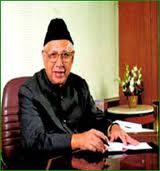
Buhari Syed Abdur Rahman was an Indian Tamil serial entrepreneur, philanthropist and educationist. He had a range of business interests in the UAE and India including maritime shipping, real estate, insurance etc. He founded numerous schools, colleges, hospitals and university. He was one of the 24 Indians to feature in The 500 Most Influential Muslims, an annual publication which ranks the most influential Muslims in the world.
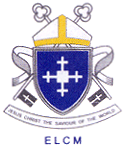
The Evangelical Lutheran Church in Malaysia or ELCM is one of the four Lutheran bodies in Malaysia. It currently has 21 congregations nationwide with a total of 3,650 members.

Lavender is a subzone within the planning area of Kallang, Singapore, as defined by the Urban Redevelopment Authority (URA). Lavender is composed of an area bounded by Tessensohn Road in the north; Balestier Road, Lavender Street and Crawford Street in the east; the Rochor River and Rochor Canal in the south; as well as Syed Alwi Road, Serangoon Road and Rangoon Road in the west.
Singapore embraces an English-based bilingual education system. Students are taught subject-matter curriculum with English as the medium of instruction, while the official mother tongue of each student - Mandarin Chinese for Chinese, Malay for Malays and Tamil for ethnically Tamil Indians – is taught as a second language. Additionally, Higher Mother Tongue (HMT) is offered as an additional and optional examinable subject to those with the interest and ability to handle the higher standards demanded by HMT. The content taught to students in HMT is of a higher level of difficulty and is more in-depth so as to help students achieve a higher proficiency in their respective mother tongues. The choice to take up HMT is offered to students in the Primary and Secondary level. Thereafter, in junior colleges, students who took HMT at the secondary level have the choice to opt out of mother tongue classes entirely. Campaigns by the government to encourage the use of official languages instead of home languages have been largely successful, although English seems to be becoming the dominant language in most homes. To date, many campaigns and programmes have been launched to promote the learning and use of mother tongue languages in Singapore. High ability students may take a third language if they choose to do so.

Maha vidhwan Thirumaaligai Appan Narayana Iyengar was born to Thirumaaligai Appan Iyengar and Shenkamalavalli Ammal on 31 Oct 1861 in EthirkOtai near Srivilliputhur. After having learnt the basics of Tamil literature and grammar from his father Appan Iyengar and other scholars near his home town during his formative years, he moved to Ramanathapuram.